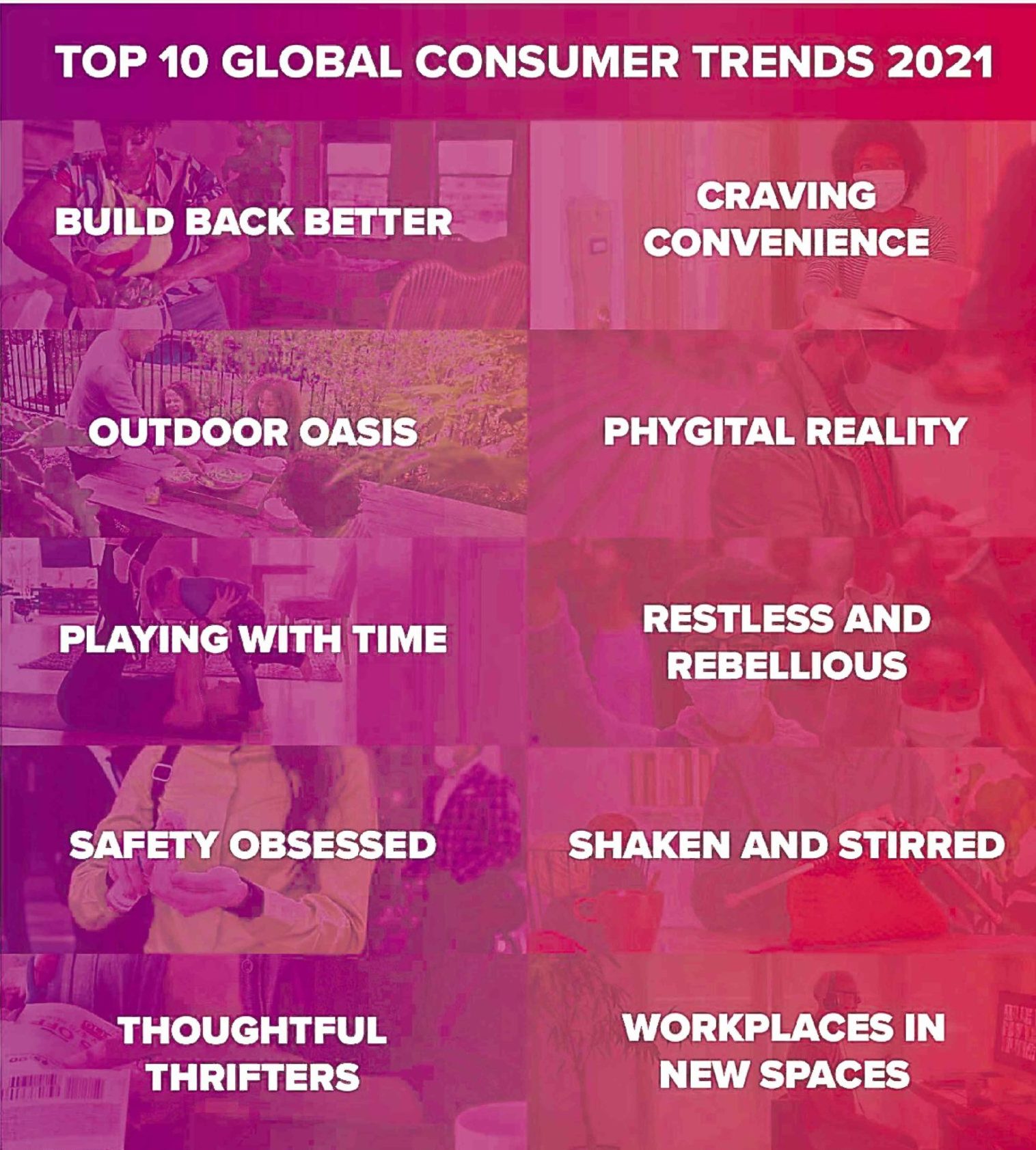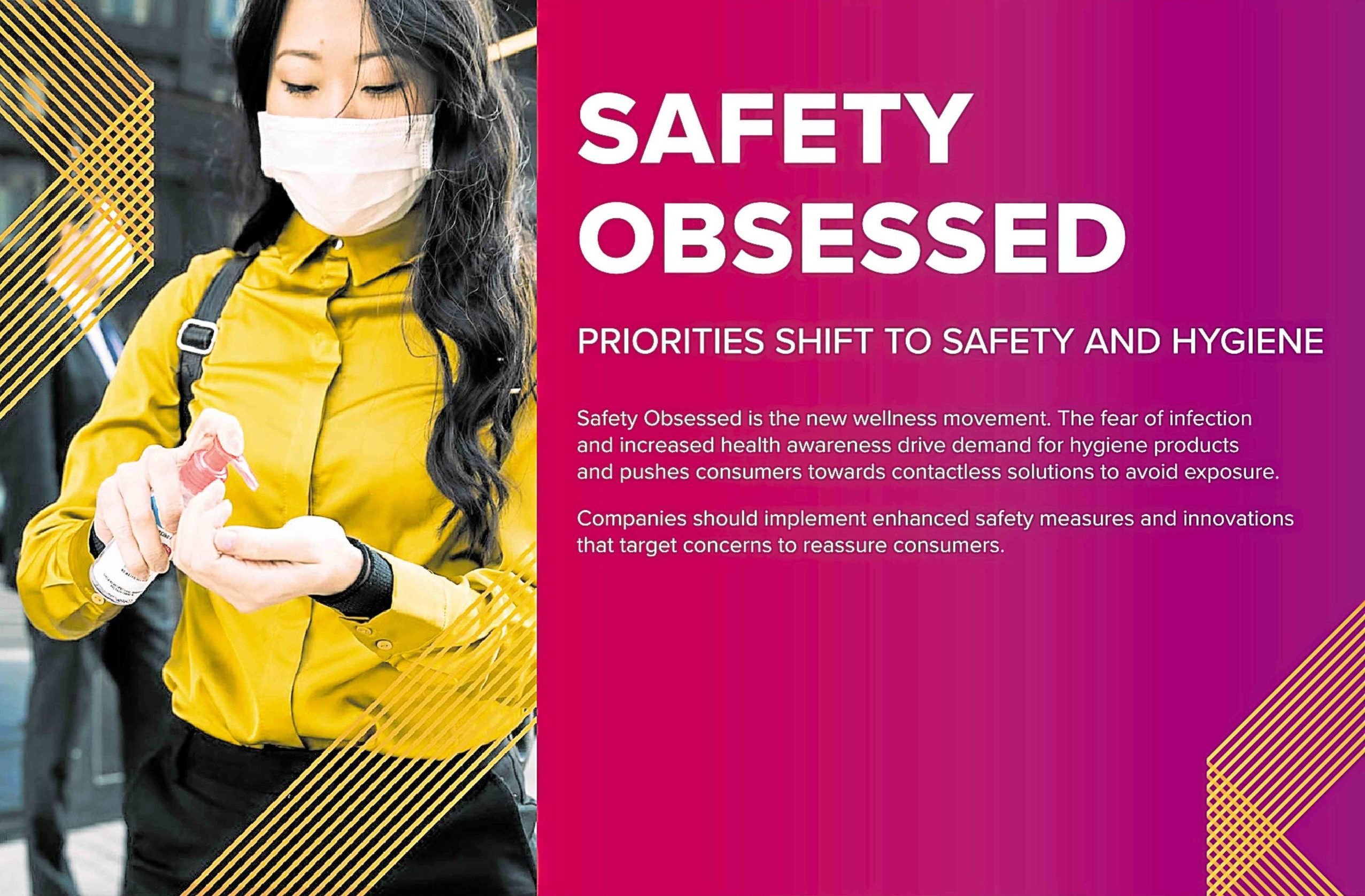Consumers embrace ‘phygital reality’
If blended learning, initially a peripheral concept, is the likely future of education when the COVID-19 pandemic ends, blended retailing may also become the new normal for commercial establishments as physical and digital worlds collide.
In its report “Top 10 Global Consumer Trends 2021,” Euromonitor International calls this combination of in-person and online shopping to respond to new consumer preferences and changes in buying habits “Phygital Reality.”
Authors Gina Westbrook and Alison Angus define “phygital reality” as “a hybrid of physical and virtual worlds where consumers can seamlessly live, work, shop and play both in person and online”.
Westbrook and Angus label the other trends as Build Back Better, Craving Convenience, Outdoor Oasis, Playing with Time, Restless and Rebellious, Safety Obsessed, Shaken and Stirred, Thoughtful Thrifters and Workplaces in New Spaces.
The authors said in the new “Phygital Reality,” “Businesses can integrate virtual processes into their physical spaces to give consumers who prefer to stay home the comfort to venture out instead.”
At-home experiences
But for those who have developed a preference for online shopping, “Delivering virtually enabled at-home experiences remains imperative to drive e-commerce sales and gather data,” they add.
Last year, when almost the whole world was confined to their homes, people between the ages of 15 and 44 composed the biggest groups of users of augmented reality and virtual reality. They formed “new habits around working, learning, exercising, shopping and socializing.” Westbrook and Angus say consumers want companies to “build back better” after the pandemic by caring “beyond revenue.” Consumers expect companies to protect the health and interest of society and the planet after COVID-19.
“Companies should help reshape the world in a more sustainable way, leading a shift from a volume- to a value-driven economy and turning the tide on social inequity and environmental damage,” they say.
While consumers have adapted to the disruptions of COVID-19, they “are Craving Convenience of the prepandemic world.” The swift and seamless shopping experience of the past has to be preserved. In-store experiences, like being able to interact with human representatives, have to be provided.
Outdoor Oasis refers to consumers growing preference for the outdoors for health and safety.
Solutions
“Companies should pivot their product development strategy to encompass the tranquility of rural living in urban environments to better satisfy city-scrapers,” the report says.
The pandemic, the authors say, have enabled and/or forced consumers to be more creative with their time to get everything done. To meet the needs of people Playing with Time, “Businesses should provide solutions that address the consumers’ desire to maximize time, offering increased flexibility, especially with products and services that can be accessed from or near the home.”
The report says consumers have become restless and rebellious, distrusting leadership and putting their needs and wants first. “Companies can cater to the restless and rebellious via more precise marketing on social media and gaming, where they can give consumers a voice and pressure social giants to take on misinformation.”
Safety measures
For the Safety Obsessed consumers emerging from a pandemic, Westbrook and Angus say, “Companies should implement enhanced safety measures and innovations that target concerns to reassure consumers.”
Shaken and Stirred by the recent crisis, consumers need products and services that support resiliency for mental well-being and to help them cope with adverse circumstances.
The uncertain circumstances have made consumers thoughtful thrifters, prioritizing value-added and healthy products as discretionary spending falls. Companies, the report says, should offer affordable options without sacrificing quality.
With Workplaces in New Spaces, consumers have to find new ways to define the beginning and end of their workdays.
“Businesses must support work-life balance, productivity and communication needs,” Westbrook and Angus say.
—CONTRIBUTED


